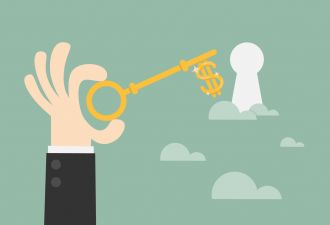Energy and water are an often-forgotten core component of thriving communities. The utility industry serves as the source of human essentials like food and shelter, powering progress and technology. The utility industry -- and the resources it generates, distributes and manages -- is critical to our day-to-day lives. For the utility industry to continue serving as the backbone of advancing a resource-hungry world, it must become more resourceful.
Today, utilities are facing new challenges with the proliferation of renewable energy and distributed generation. Additionally, consumers are demanding ready access to timely information and more competitive supply options to lower their costs. The utility model will need to evolve to address these new demands and better engage consumers.
The industry is seeing a shift to the use of more technology and data as a means of addressing these challenges. Smart meters have given electric, water and gas utilities more insight into operational inefficiencies and a framework for using the data they collect to improve decision-making across their entire operations. Smarter grids and the data they provide are a solid starting point for becoming a more resourceful industry.
Still, we need to do more.
To help benchmark this need and the challenges facing electric, water and gas utilities, Itron conducted a worldwide study of the utility industry. The Itron Resourcefulness Index surveyed more than 800 informed consumers and 600 utility executives in fourteen countries to gauge how resourceful they think the industry is today, what the current challenges are, and what they see as the potential barriers to advancing the industry and using resources more efficiently. The results illustrated gaps between consumers’ and utility executives’ perceptions of utility resourcefulness, as well as variations in resourcefulness in regions around the world.
Across utility sectors and around the world, the need for transformation was universally acknowledged, with 94 percent of utility executives surveyed agreeing that the transformation of operations is essential to the improved efficiency of electric, water and gas utilities. Despite the diversity of utility types surveyed, several common themes emerged.
A Need for Greater Efficiency
Nearly 60 percent of utility executives and 70 percent of consumers think utilities are not operating efficiently. Billions of dollars are wasted each year and finite resources are being misused at a time when the electric, water and natural gas infrastructures are experiencing strain.
Electricity, water and gas are fundamental elements of modern society, and demands are increasing as the world’s population grows in number and affluence. The interconnectedness of these resources and the increase in demand means that thoughtful management is more critical than ever. The way we manage energy and water will define this century, and it’s time for clear industry alignment and action to ensure resources can meet demand.
Consumers Want Information From Utilities
In addition to wanting greater efficiency, consumers are hungry for more information from their utilities. Eight out of ten consumers surveyed for the Index said they currently do not receive enough information from their utilities about efficiency tips and programs, and seven out of ten said they want to know more. Consumers want help cutting costs on utility bills and are looking for more information about efficiency programs and services. Notably, they are looking to utilities to provide that information.
For consumers, the call for utility transformation and greater efficiency is rooted in a desire for more information about resource use. While utilities have made great strides in sharing information with consumers, there’s more to be done. As utilities gather more information about where and how electricity, water and gas resources are being used, they can use that information to engage consumers.
Utilities and Consumers Agree on Barriers to Transformation
Utilities are some of the most heavily regulated organizations in the world. In the U.S., at least ten federal departments have responsibilities for regulating energy, and each state has its own public utility commission that oversees electricity, water and natural gas, while overlapping regional bodies for all three utility types also have a stake in the outcome of policies and implementation.
With so many organizations issuing regulations and enforcement actions each year, 94 percent of utility executives agree that government policy and uncertainty about coming regulations hinder infrastructure investment. Consumers agree with their utility providers on the confounding role of government policy (or in some cases, lack of policy) in slowing infrastructure investment, with more than half saying that government is a barrier to progress in the industry.
Technology Is Key to Industry Transformation
While the Index identified strong agreement around the need for greater efficiency in resource management, more consumer engagement and current barriers to progress, clear consensus about the best solution also emerged in the results. Utility executives and consumers noted technology as a solution to move the industry forward and improve efficiency and consumer engagement.
More than half of utility executives surveyed said the first thing they would do with more funds would be to spend it on technology. Of those who would invest, 68 percent said they would invest in IT services, and 58 percent would invest in the monitoring technology that constitutes the “internet of things.” Utility executives also noted a need to increase technology in order to manage big data. While only 46 percent of utility executives feel prepared to manage big data today, 74 percent feel that big data insights are central to infrastructure modernization efforts.
(click to enlarge)
Technology is the common thread that is key to solving industry issues and transforming the industry. Greater adoption of technology will provide utilities with more data and the data is critical to helping consumers understand where and how they’re using resources.
The Path Forward
The utility industry is at a critical point, facing demands for modernized infrastructure, more consumer control, more information about resource use and management and a shifting business model. Though utilities are facing these very real challenges, they are not insurmountable. Technology can begin to address utility executives’ and consumers’ concerns, providing insights to empower consumers, utilities and regulators to implement change. Change begins with information. The collection of clear and measurable data can provide an objective frame of reference to foster better decision-making about the efficient delivery of electricity, water and gas.
The informed future has arrived for electric, water and gas utilities. With increased technology adoption and an embrace of the full potential of big data, the utility sector has the opportunity to transform the 21st-century economy.


_582_198_80.jpg)
_582_203_80.jpg)


